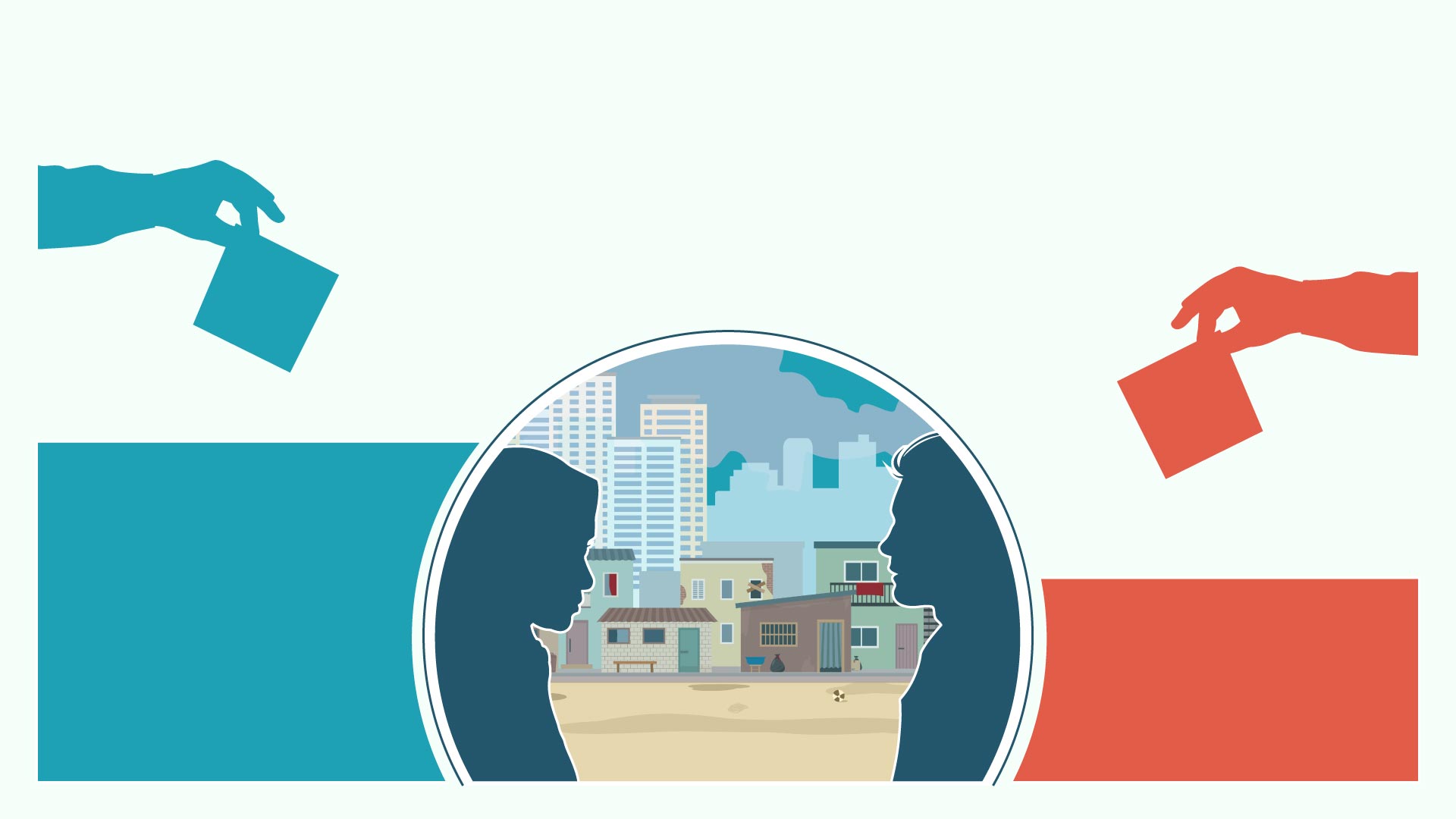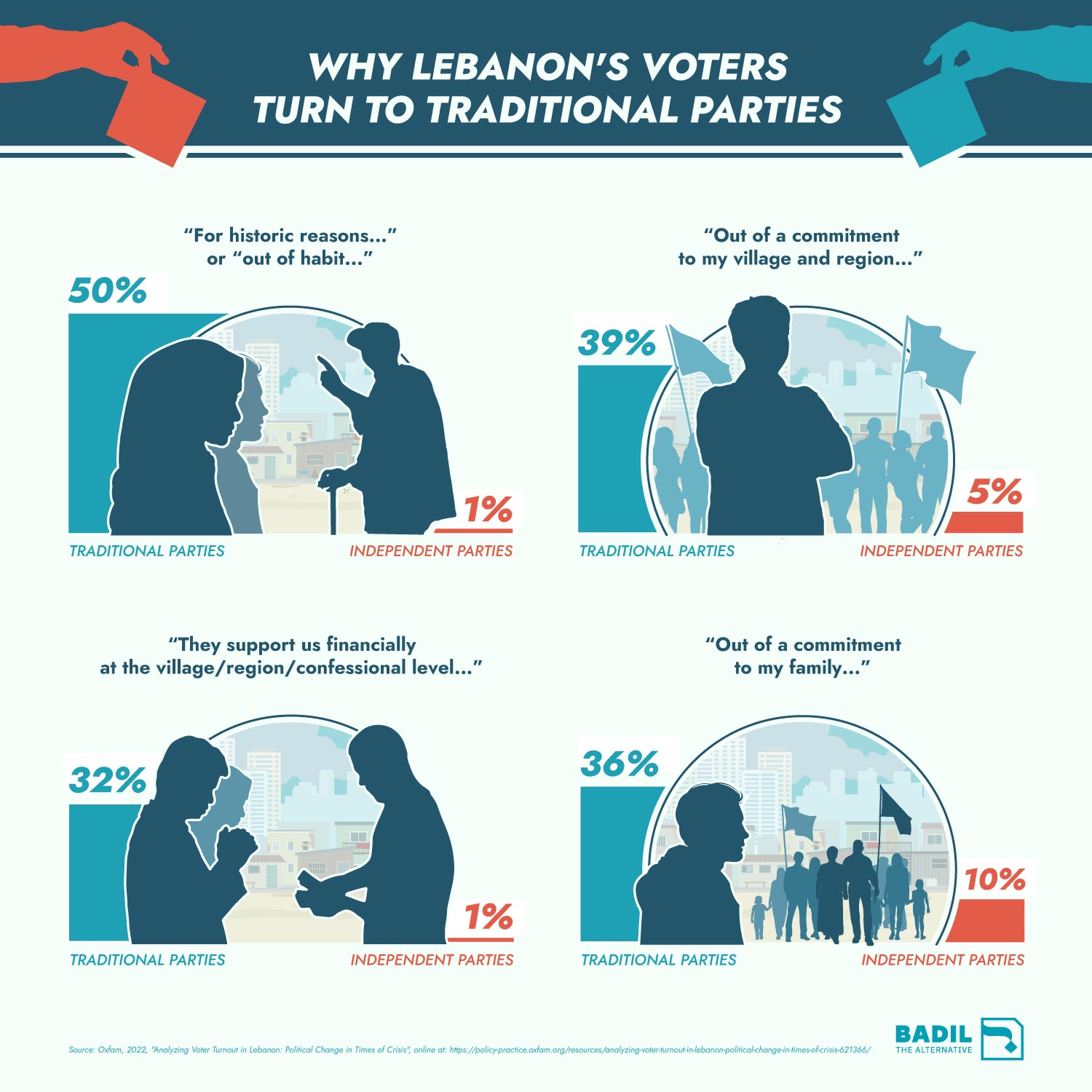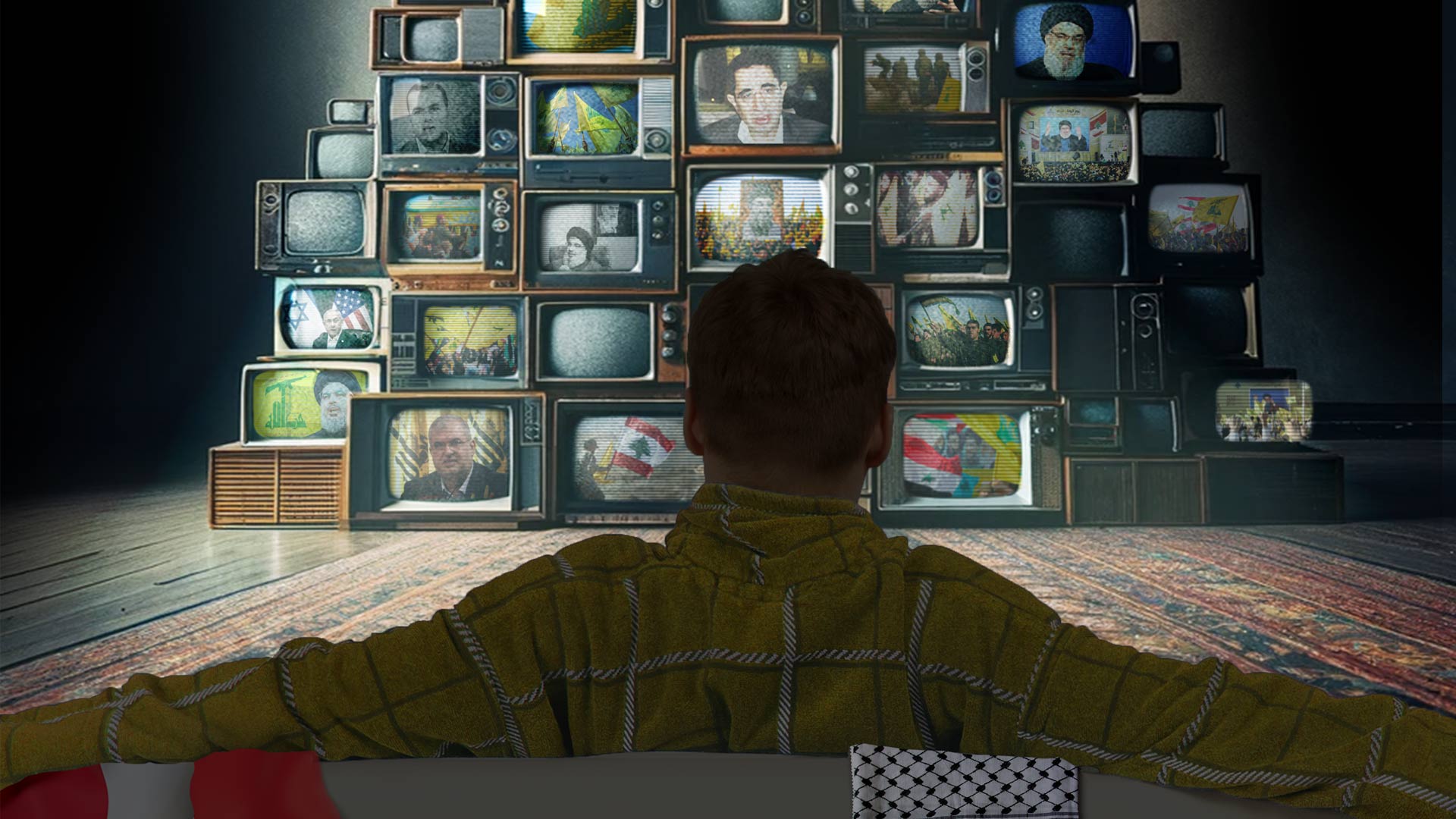Two and a half years, three prime ministers, an exploded capital, and billions still stuck in the banks have done little to lift the grapple hold of the 30-year political hegemony of Lebanon’s ruling elite. With parliamentary elections slated for May 15, the Lebanese will have their first chance at democratic change in the country since the October 2019 uprising and financial crisis. Yet whether they choose the old guard or the new blood will come down to their intentions on the day, the topic of a new poll of over 4600 eligible voters conducted by Oxfam.
To start, voter apathy looks to be widespread with just 54% of those polled saying they would vote in the parliamentary elections. While actual turnout at polls may wella differ, the figure gives a good indication that the historical trend of half the electorate turning out on voting day may persist. The past few months seem to have been pivotal in enhanced support for independent candidates: compared to previous polling by the Konrad Adenauer Foundation in December 2021, the number of respondents intending to vote independent has almost doubled.[1] And among those who now say they will vote in the next election, 48% said they would vote for independent candidates, defined in this study as candidates which had not previously entered parliament. [2]
That may sound like a boon for an opposition with one semi-independent candidate in office. But the number significantly changes when accounting for urbanisation. In more urban areas such as Beirut, 66% registered to vote there say they will vote for independent candidates, relative to 51% Aley-Shouf and just under 20% in Tyre-Zahrani.[3] These results indicate that, as expected, these districts are the most likely to see independents win seats while traditional parties in the south wipe out the opposition.
The proportional representation (PR) voting system, introduced in 2017, replaced a majoritarian winner takes all system. PR allows for seats to be allocated based on share of votes and, in theory, should benefit minority candidates and encourage voter turnout. However, in practice the PR system introduced several caveats that undermine its progressive veneer. Christophe Kairouz, a senior research assistant at Lebanese Association for Democratic Elections (LADE) outlined two main factors in the electoral system that disadvantages independent candidates: 1) A high electoral threshold and 2) Gerrymandering and Sectarian Distribution. For a PR system to work, a low electoral threshold is needed (under 5%). In Lebanon, the electoral threshold is extremely high and ranges from “7.7% up to 20%”. For example, Tyre-Zahrani has an electoral threshold at 14% whereas Aley-Chouf candidates are only required 7.7% of votes to gain a parliamentary seat. A high electoral threshold makes it more difficult for independent candidates to gain a seat, unlike traditional candidates who have larger resources, alliances, and mechanisms of support. Gerrymandering and sectarian quotas also greatly contribute to entrenching traditional parties. The voting districts have been gerrymandered “to maximize the benefits of forthcoming electoral alliances.”[4] The law has manipulated the boundaries to where there is clear confessional majority effectively reducing the religious and ideological diversity of a district to a point where minority or opposition votes are negligible.
The rural-urban divide is also likely explained by recent history. In 2018, only 35% of Beirut’s eligible voters turned out on the day. Since then Aug. 4th Blast, concentration of protests, months of sit ins and civic discussions in the capital likely account for a doubling of the expected turnout. At the same time, in the south, traditional parties such as Hezbollah and Amal have long provided social services such as education, healthcare, and microfinance for their members while the state has long been absent. Finally, the polling in Aley-Shouf supports the argument that voters participate more when the margin of votes between competing parties is small when compared to Tyre-Zahrani.[5]
Interestingly, those above the age of 60 expressed the highest desire to vote independent at 58%, while the lowest age bracket (21-30 years) had the second highest intention to vote independent at 52%. The findings indicate that senior citizens may have reached the point where they no longer support their traditional parties. Given senior’s influential roles in household decision making and ‘trickle down’ family voting, opposition candidates would do well to target campaigns at this cohort.




